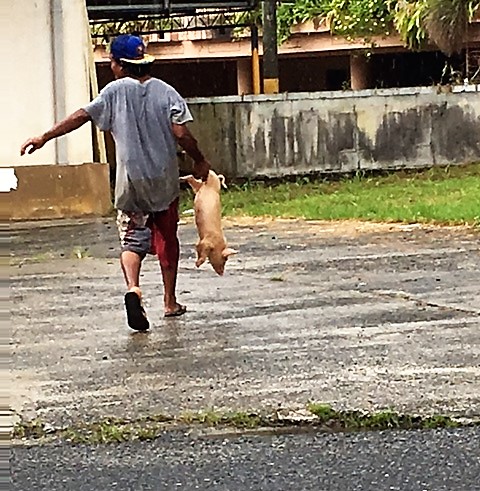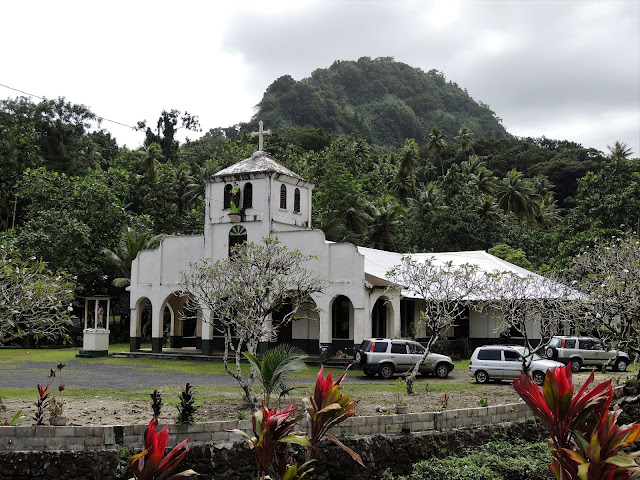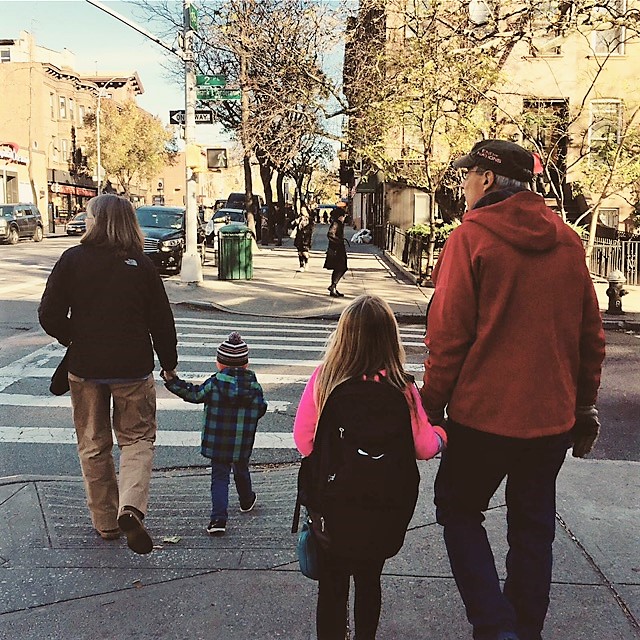The Peace Corps has three goals, one of which is:
To help promote a better understanding
of other peoples on the part of Americans.
So,
what “better understanding” do I have about Pohnpei and the people who inhabit
this island? The previous 24 blog posts
from Lin and I have provided lots of details in answer to that question. Below are some random thoughts gleaned
from eight months of working and living on Pohnpei.
Time From day one I heard about “island time” or
“Pohnpeian time.” So, we were
warned. But it is hard to over-emphasize
the difference. In my professional life
I was driven by the clock and the calendar.
Meetings took place at a certain hour.
School calendars were set in stone a year in advance. We now have calendar apps, and while in the
states, my i-phone will tell me where I am supposed to be and when. Here, not so much. Attendees wander in to meetings when the
spirit moves, meetings are set, cancelled, reset, or ignored, seemingly without
consequence. Time is simply more fluid. While there are clocks, they hold less
sway. There are calendars, but scheduled
events may or may not take place. Even
the seasons demonstrate less emphasis on time.
At home, the seasons change regularly, demonstrating the march of
time. Here, there is no discernible
change in the weather—it’s constant summer, with little change in daylight or
temperature from month to month.
So,
it’s different. After eight months, I
have probably changed more than those I attempt to influence. No point in being frustrated or taking missed
meeting or late arrivals personally.
Interestingly, people within the school system will acknowledge the
inefficiency engendered by a casual attitude toward time and speculate that it
is one of the things holding them back. But, the desire to change—to give date
and time more importance—has not reached critical mass.
Accountability One of the workshops I did with Department of
Education Leadership stressed the conditions required for the system to hold
its people accountable. Specifically: Expectations must be clear; employees must perceive
that these expectations are reasonable; and employees must anticipate that
positive consequences will follow performance and negative consequences will
follow poor performance. Seems pretty
clear cut, but conditions on this small island complicate these
assumptions. With few exceptions, people
come from large extended families with multiple relationships. Everyone really is related to everyone
else. Reinforcing this is a strong
traditional leadership system within which people are required to respect their
clan relationships and elders. In short,
principals and other leaders often find it difficult to hold people accountable
when those they supervise may be family members or may hold titles that make it
difficult to challenge poor performance.
Whatever the reasons, accountability as we interpret it is another
condition for improved schools that has yet to firmly take hold.
Sense
of Community At home, you read (or experience) the fact
that people are becoming more isolated, less socially connected. From Robert Putnam’s “Bowling Alone,” to more
recent commentary (such as David Brook’s recent essay in which he suggested
that instead of going over to the neighbor’s house, we are more likely to spend
our time surfing everybody else’s lives on Facebook), the fear is that we are
losing face-to-face social engagement.
Not so here—especially in the more rural areas of Pohnpei. The teacher and principal workshops we
conduct as Peace Corps volunteers around the island are not limited to staff
development. Rather they are social
events where teachers and community members provide a meal in appreciation for
our involvement in their lives. As
another example, these afternoon workshops often have us on the road for home
between 5:00 and 6:00 p.m. It seems that
every little village en route has all of its inhabitants out along the road at
this time, talking and walking with each other, playing volleyball, drinking
sakau, or just gathering in the shade.
This, too, may change, given young people’s growing addiction to
electronic devices. But for now, the
sense of community is strong. Fun to see
and experience.
Change
is haphazard One of my colleagues in our Peace Corps
Response program was a Peace Corps volunteer on Pohnpei from 1969-71. He marvels at the change. Where there are now roads, there were just
paths; where now cars are everywhere, 45 years ago he can remember only three
vehicles on the island. Where now most
of the structures are made of concrete, in his time such buildings did not
exist. Where now Pohnpei has a state and
national government modeled after the U.S., before traditional leadership held
much more sway. In short, change has
come much more rapidly here than what we experienced in the States—from
primitive to modern in a very much shorter period of time. There are consequences associated with this
rapid change. For example,
infrastructure is much more tenuous.
While there are services such as electricity and public water in Kolonia,
they often fail because there is neither the expertise nor parts and equipment
to maintain the systems. There are too many cars, too few roads, and too little maintenance. And, while there
is cable TV in Kolonia, there is no system to bill customers other than to
hand-deliver invoices to various locations.
In short, change has taken place much more rapidly here, but often the
context within which it has happened has not been ready to accept or deal with
it.
Social
norms Here, it is acceptable to raise pigs and
chickens in your side yard—even in Kolonia.
It is acceptable to chew betel nut and spit the red juice out your car
window. Clothes are optional on little
kids. It is OK to load up you pick-up
truck with a dozen people in the back or for your two-year old to hang out the
car window. Formal dress is a Hawaiian
shirt and flip flops. Takes some getting
used to. On the other hand, eye contact,
a warm smile, and a friendly greeting are the norm—even among strangers, young
and old. The other night we were stuck
in the airport without our promised ride at 1:00 a.m. No less than four people asked us if we were
all right and whether we needed a ride. When
we walk back from the market loaded down with groceries, often complete
strangers will stop and ask if we could use a ride. The fact that we just returned from a week in
New York City, where eye contact is avoided and “stranger danger” is taught in
schools, the difference is pronounced. When we exclaim our appreciation, folks
here just shrug their shoulders and say, “It’s the Pohnpeian way.” It seems we have much to learn from each
other.
Impact
of “free” money I am used to a money economy where goods and
services are valued in terms of the time and effort required to produce them,
or in terms of the value they add; where, for example, public schools are
financed by state and local taxes and held accountable by the citizens paying
for them. Here, it is a much different
system with significant ramifications.
As noted in previous blog posts, nearly all of the money to run public
services on Pohnpei comes from U.S. aid, which has been ongoing since before
the Federal States of Micronesia (FSM) became independent in the 1980s. Schools provide an interesting case
study. While there have been modest attempts
to hold schools accountable within this system, they have proven
ineffective. And, while there is never
enough money, what is provided comes with few strings attached and with little oversight. The result—too many
poor decisions made by people who have not been held accountable by the people
they serve. And, since the typical
parent or student is not paying for their education, they seem less inclined to
question its effectiveness. If able,
they simply vote with their feet and enroll their children in private schools,
whose financial support depends on satisfying their customers. In short, there is probably a lesson in all
this related to the impact of “free” money.
At
this point, Lin would tell me to lighten up.
So, I will end this post with a “little piggy” drama that unfolded up
the street from us. For a minute the
little guy got away, but not for long.























































